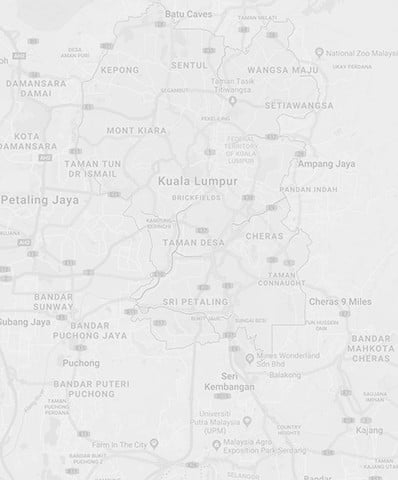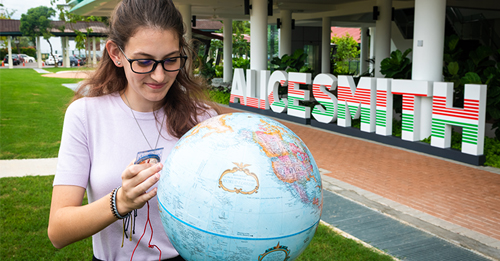As a first-time expat, the abrupt change in your way of living can be a shock to the system. Your daily activities, social circles, everything that was once so familiar is different.
At first, it’s exciting. There’s so much to explore and so many items to check off your to-do list to help your family settle in. But as the days, weeks and months go by, that initial excitement will slowly fade. It’s a typical response to a major upheaval in your life. What is not typical or healthy is the sleep disturbances you may be suffering, the diminished interest in activities you usually enjoy, the feeling of guilt, your unusually low energy, your lack of appetite, your indecisiveness or your heightened agitation.
These symptoms point to one of the most common mental health conditions experienced amongst expatriates: depression.
“Expatriates do, in fact, experience extraordinarily high stress as well as social and emotional disruption that results from dislocation and moves. These factors, in turn, would be expected to result in higher rates of impairing emotional disruption and convey a higher risk for mental health problems.”
As illustrated with the quote above, this is not a condition to be ashamed of, it’s something that affects much of the expatriate population. To fight back and work your way through the depression, follow the below steps and remember to reach out for help if necessary.
1. Prioritise Your Mental and Physical Health
As parents, your physical and mental health are often areas that fall lower on the priority list.
You've just moved to a new country, your routine hasn't been established and your children need your support more than usual. In fact, it's because of these added stressors that it is imperative you prioritise your mental and physical health - particularly when you’re suffering from expat depression.
To understand how exactly how to improve these areas, let’s break it down further and focus on the following:
Acknowledge the Condition
One of the most beneficial things you can do when suffering is to acknowledge it and lean on those around you.
Talk About Your Expat Depression
This can be with your partner, a friend, a parent, a counsellor, an intercultural coach, etc. Acknowledging your challenges out loud can often reduce the effects the symptoms have on your mind and your body.
Seek Help if Necessary
You can either go to a counsellor, therapist or hire an intercultural coach, a cross between a life coach and a cultural coach.
According to Dominika Miernik, a career and intercultural coach, these individuals can help expats gain a deeper understanding of themselves, establish goals and create a plan to overcome these challenges.
If you do need help, you can either research clinics near you or speak to the school's Counsellor for guidance.
Exercise Regularly
It’s no secret that exercise helps your mental health, it releases endorphins inherently making you feel happier.
According to Harvard Health Publishing, the real value is in low-impact exercise sustained over a period of time as it releases healthy neurotrophic, a growth protein that causes nerve cells to grow and make new connections. Similar to endorphins, these connections make you feel better.
“In people who are depressed, neuroscientists have noticed that the hippocampus in the brain—the region that helps regulate mood—is smaller. Exercise supports nerve cell growth in the hippocampus, improving nerve cell connections, which helps relieve depression.”
2. Establish a Routine
According to Dr. Christopher Willard (PsyD), a Psychologist and Educational Consultant based in Boston specializing in mindfulness, it’s important for expats to create a daily routine to establish the feeling of familiarity and consistency.
Maybe it’s waking up, dropping your children off at school, heading to yoga class, meeting with a member from the PTA, picking up some groceries or perhaps it looks completely different, just make sure that you’re including activities that you love.
3. Get Involved in Your Child’s International School
To work on your mental and physical health and establish a routine, we encourage you to get involved in your child’s international school by joining the Parent Teacher Association (PTA).
PTA members are actively involved in school life in some way. Parents play an integral and valued role, contributing so much to enhance both their children's experiences and the life of the school community.
As a PTA member, you’ll meet fellow parents who have most likely been in your shoes. You can lean on them, create lasting friendships and make a positive difference in the school community.
At our British international school, the active PTA has an elected Committee which meets regularly and supports the school through events, fundraising and feedback.
The PTA also has a Welcoming Committee, which helps support new families in their transition to Alice Smith and Kuala Lumpur. At our Primary campus each class has two PTA representatives who will contact our new families to introduce them, setting up coffee mornings and playdates to help you and your child settle in as well as being able to answer some of those questions like ‘Where can I get…?’ and ‘How do I…?’ that naturally come up.
When selecting a school for your child, your wants and needs take a backseat as your sole concern is finding the right fit for your children. We urge you to include a strong PTA in your search for an international school.
Getting involved in your child's education will help break you out of expat depression and help you make a difference in the school community. You'll also be able to meet like-minded people.
When looking for international schools for your children, make sure to ask about the sense of community and whether or not they have a PTA. Rather than take note of the questions you want to ask admissions, we’ve created a complimentary Admissions Checklist.



